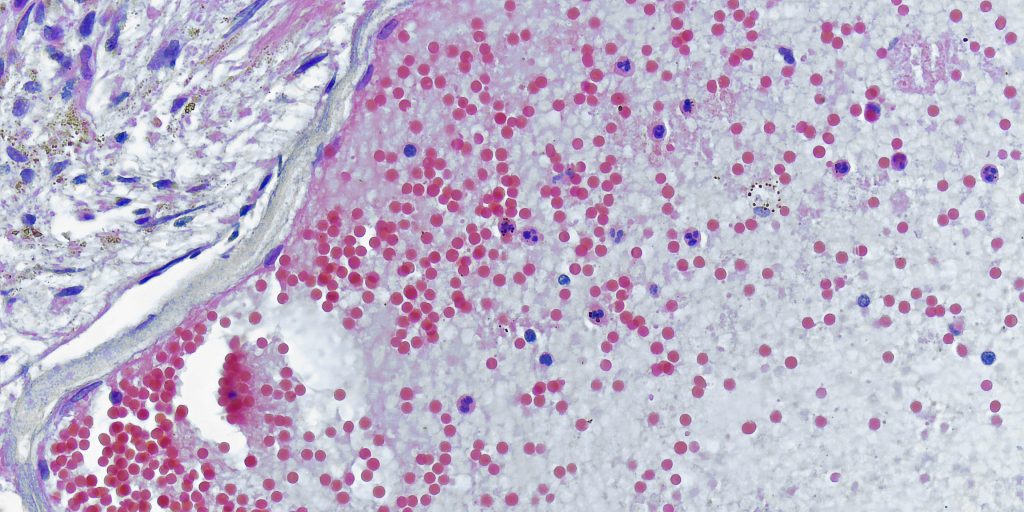- As of August 4, there have been 26,864 confirmed cases of monkeypox worldwide.
- Of those, there have been 10 confirmed deaths in Spain, Brazil, India, Ghana, and Nigeria.
- There are 7,102 monkeypox cases in the US and so far no one has died on American soil from it.
Western Europe and the US have a new outbreak on their hands: monkeypox. But just how serious is this viral illness that's a cousin of smallpox? And can you die from it?
Monkeypox mortality rate
So far, the current strain of monkeypox hasn't been very deadly.
As of August 4 there are:
- 26,864 confirmed cases of monkeypox worldwide this year
- 7,102 monkeypox cases in the US
- 10 deaths from monkeypox in Spain, Brazil, India, Ghana, and Nigeria. No one in the US has died from monkeypox.
To compare, there have been 577 million confirmed cases of Covid-19 worldwide and 6.4 million associated deaths as of Aug. 3.
While past outbreaks in Africa have seen monkeypox mortality rates of around 3% to 6%, the current outbreak is well below 1%, says Jameela Yusuff, an infectious disease physician and the Chief Medical Officer at University Hospital at Downstate Health Sciences University.
That is partially due to the particular strain of monkeypox circulating. It may also be because the outbreak is currently affecting mostly young, healthy individuals without comorbidities, Yusuff says.
In comparison, mortality rates of other infectious diseases include:
|
COVID-19 |
0.1% - 14.5% mortality |
|
Flu |
|
|
H1N1 |
|
|
Ebola |
|
|
Smallpox |
|
|
Bubonic plague |
|
|
Norovirus |
However, monkeypox's mortality rate could change as monkeypox infections spread beyond healthy young adults into more vulnerable populations, including kids, Yusuff says.
How serious is monkeypox?
Monkeypox is serious in that it's spreading quickly and its symptoms — including fever, swollen lymph nodes, and a bumpy rash — can cause significant suffering, says Peter Gulick, a professor of medicine at the Michigan State University College of Osteopathic Medicine.
"It can still cause problems as far as a lot of lesions and they can be very, very painful and somewhat debilitating so it is kind of scary in that sense," Gulick says.
But the average healthy person without comorbidities is very unlikely to die from the disease, Gulick says.
Who is most at risk?
In severe forms, monkeypox can trigger sepsis, encephalitis, or secondary infections, Yusuff says. These can be fatal, especially in people with preexisting conditions.
Some people more likely to develop severe cases of monkeypox include:
Monkeypox can spread through both direct and indirect contact:
- Direct contact could include touching an infected person's scabs or bodily fluids, or prolonged exposure to respiratory secretions.
- Indirect contact involves touching items an infected person has left secretions on, like blankets or clothes.
Monkeypox is considered less transmittable than COVID-19, with the average infected individual spreading the disease to only one or two other people, compared to as many as 15 with recent strains of COVID-19.
It's not entirely clear how common asymptomatic transmission of monkeypox may be, but Yusuff says it's likely less common than in COVID-19. That reduces the risk of spread, since it's easier to identify infected individuals and ask them to quarantine.
In that sense, "COVID would still be high on the list to be very aware of and very cautious of," Yusuff says.
Insider's takeaway
While past monkeypox outbreaks have had high mortality rates, the current strain spreading across the US and Western Europe is unlikely to be deadly.
However, it's important to remain vigilant, and remember that monkeypox can affect anyone, including kids, Yusuff says.
Make sure to see a doctor if you have monkeypox symptoms. "We have to be aware now that developing a skin problem, a skin disorder, it's important to get in to your doctor or some urgent care setting to make sure you don't have it," Gulick says.
If you do, you can isolate and, in severe cases, get treatment.
